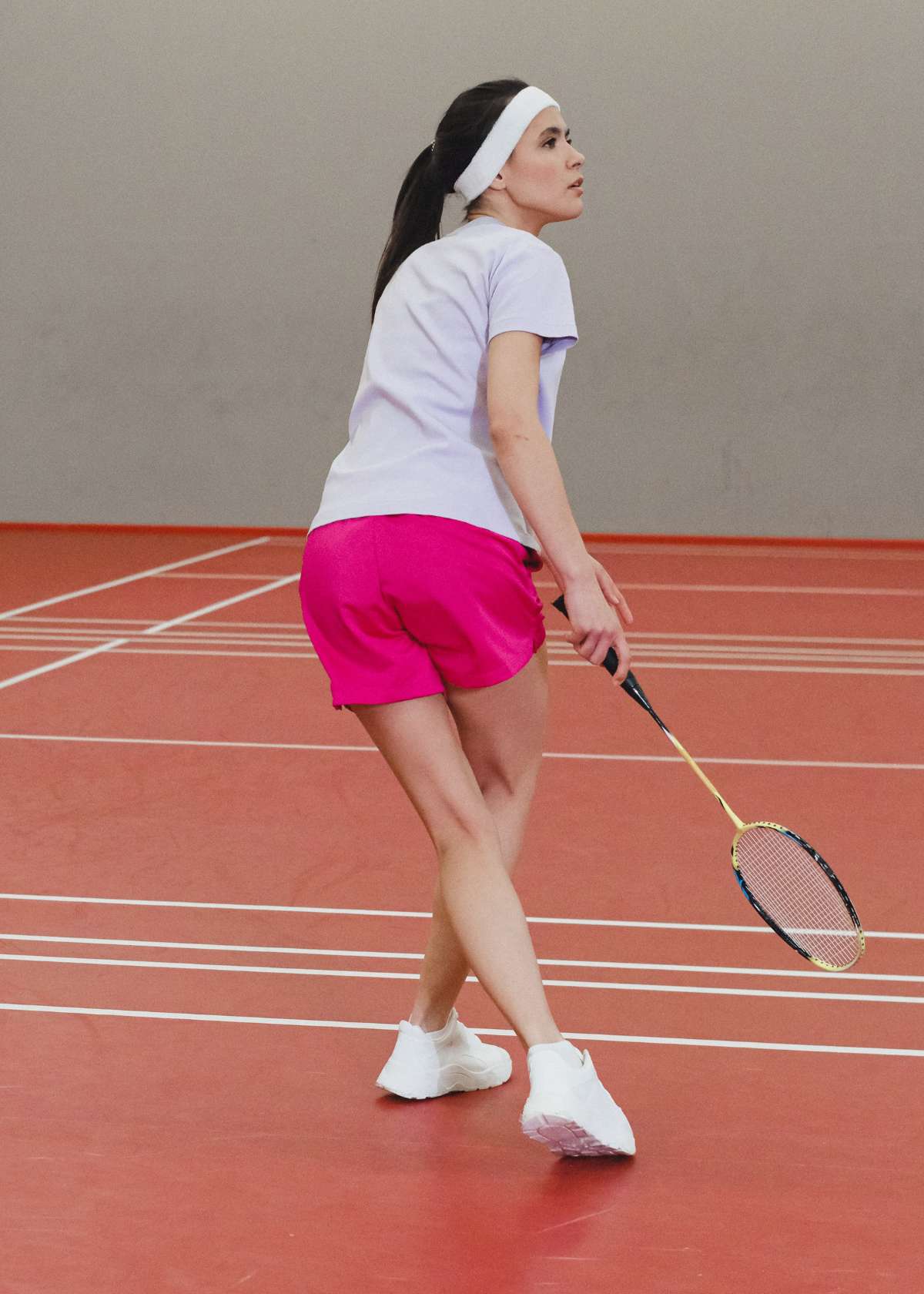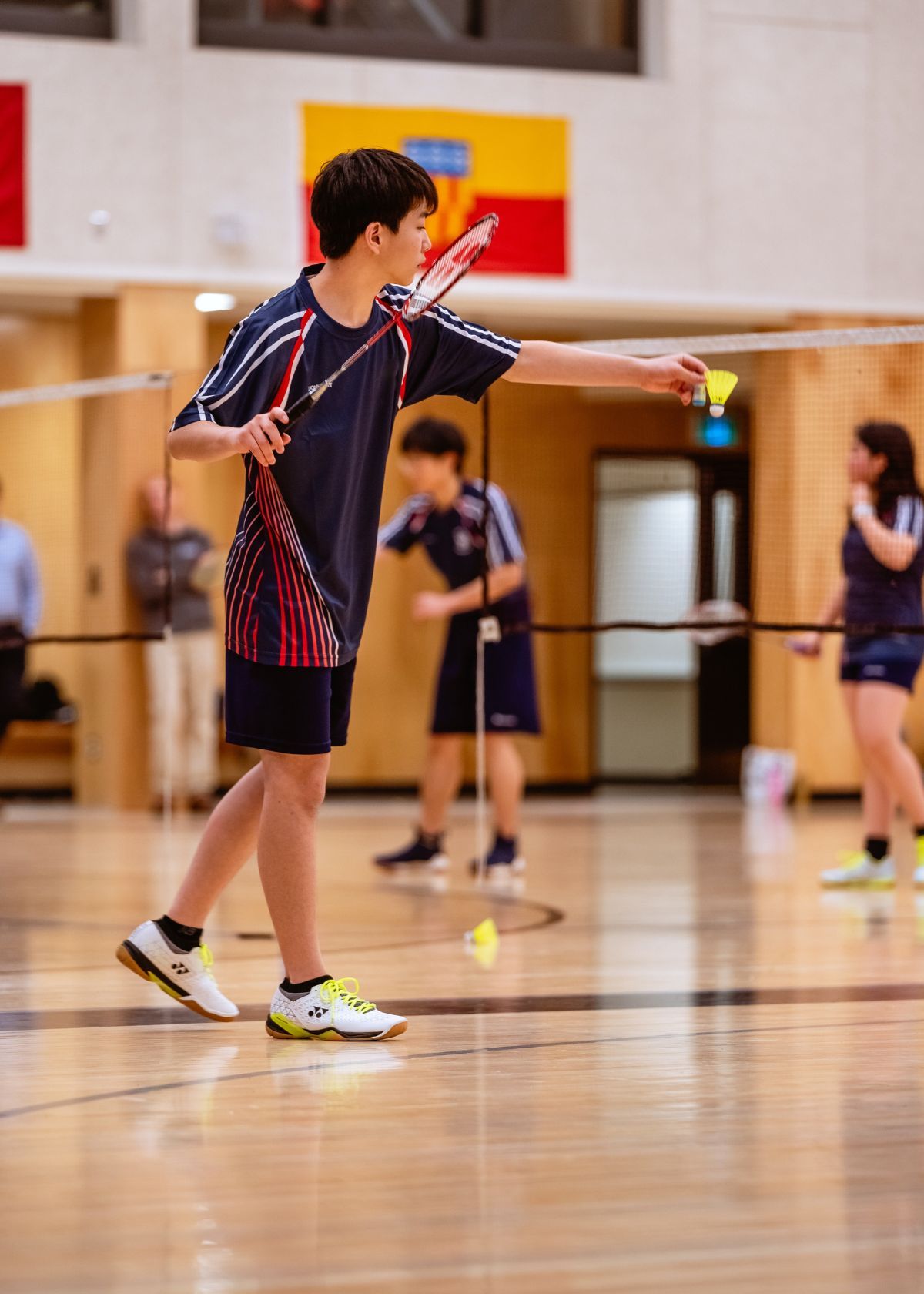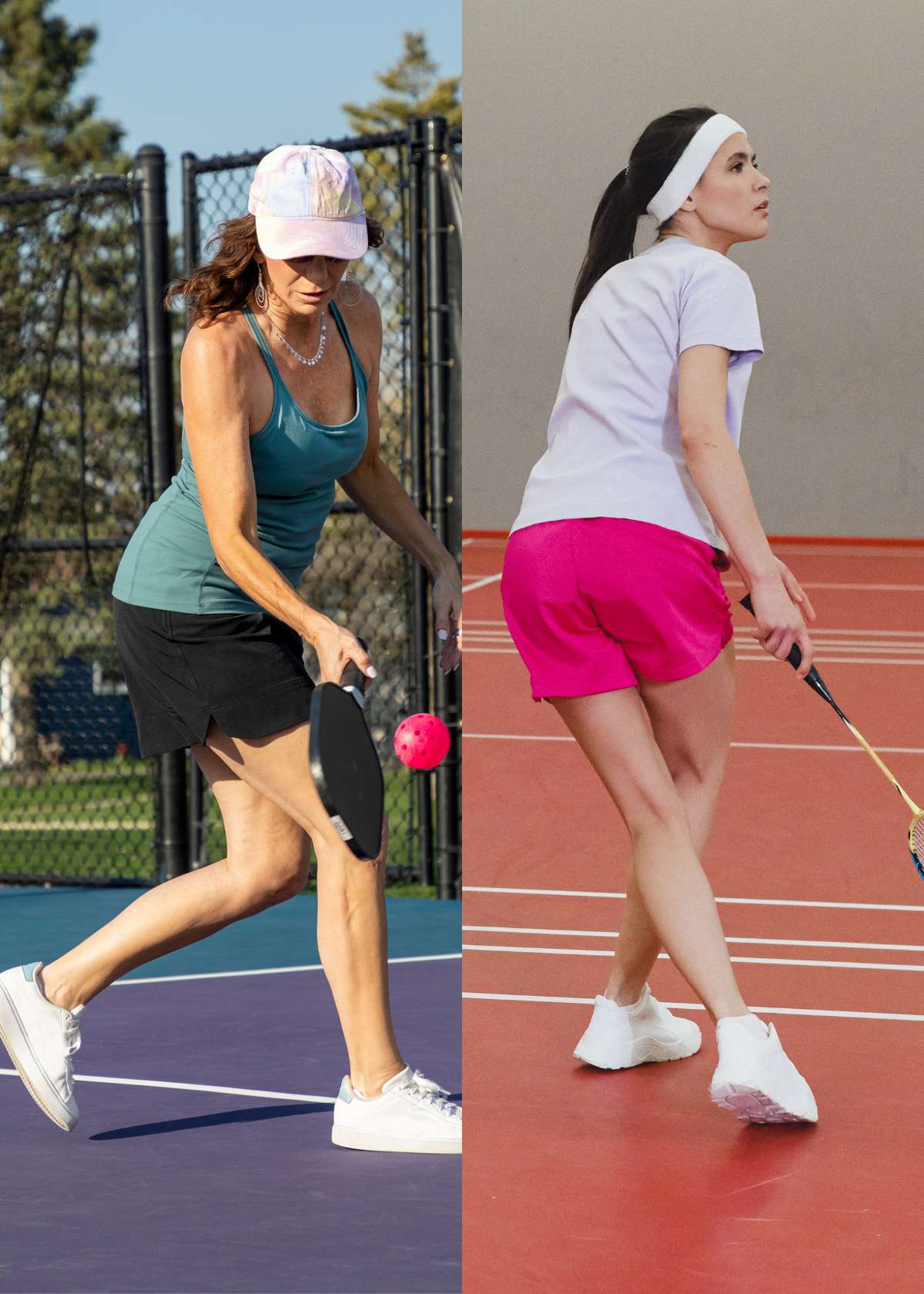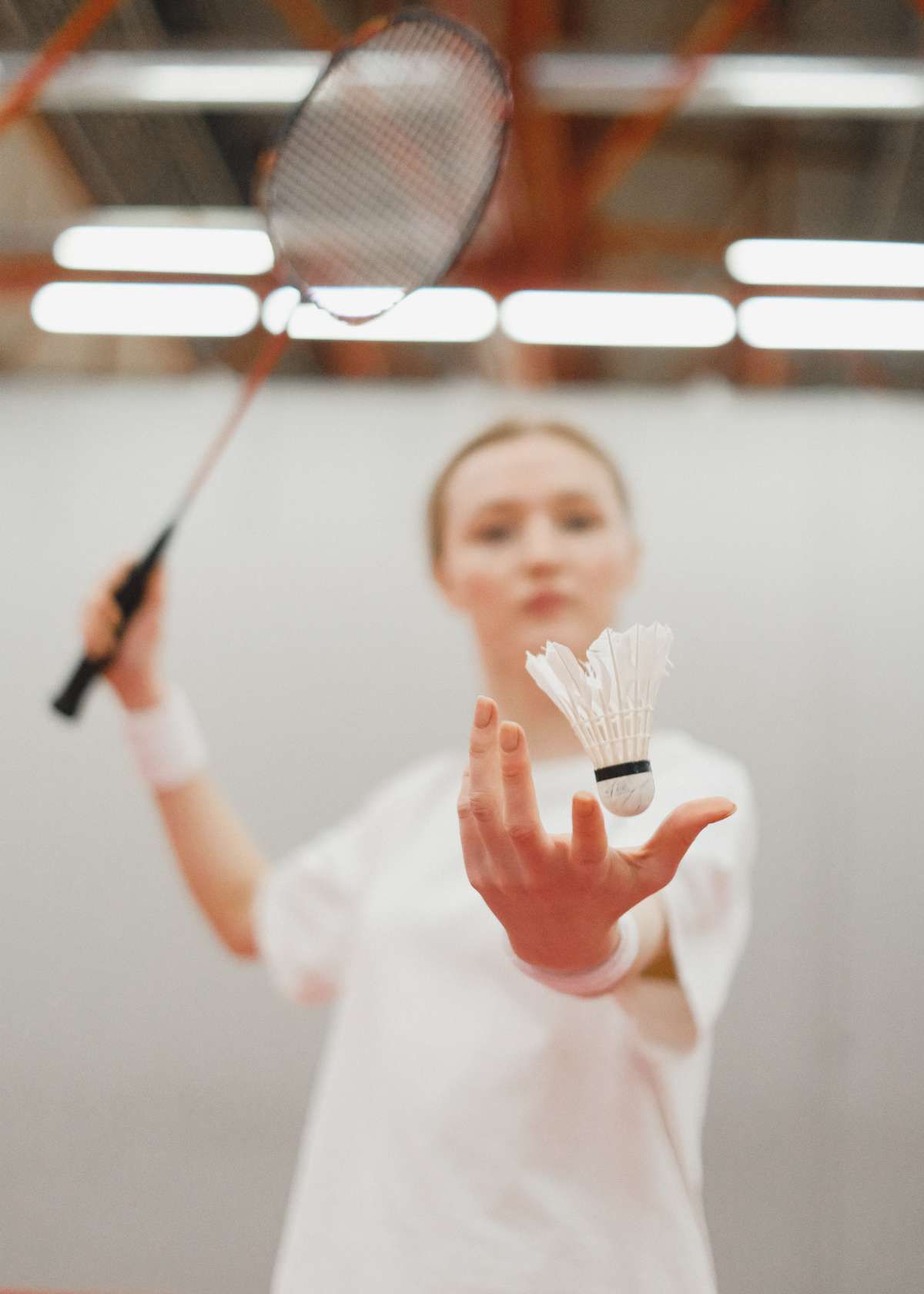Introduction
What is Badminton?
Badminton is a racquet sport that involves hitting a shuttlecock, also known as a birdie, across a net. The objective of the game is to land the shuttlecock within the opposing player's half of the court. Each time this is achieved, a point is scored.
Brief Overview of Badminton
Badminton matches consist of the best of three games, with 21 points needed to win a game. The sport can be played one-on-one (singles) or two-on-two (doubles).
It requires agility, speed, and strategic thinking to outwit the opponent and make the winning shot. Badminton is played on a court that measures 44 feet in length and 20 feet in width.
A point is scored when the shuttlecock lands within the opponent's half of the court, or if the opposing player commits a fault. When serving, players must make sure to hit the shuttlecock over the net so that it lands inbounds; otherwise, a fault will be called and
Why Badminton Is Popular
Badminton is popular for its accessibility and inclusive nature. The equipment is affordable and the rules are simple to understand, making it a great sport for people of all ages.
Additionally, it offers a great cardio workout and helps improve coordination, balance, and reflexes. Badminton is also a great recreational activity that can be enjoyed by friends and family.
Where Badminton Is Most Popular
Badminton enjoys immense popularity in Asia, particularly in countries like China, Indonesia, and Malaysia where it is considered a national sport. The sport is also gaining popularity in Europe and North America due to its health benefits and the increasing availability of badminton facilities.
The History of Badminton
Origin of the Game
The roots of badminton can be traced back to ancient civilizations in Europe and Asia, but the modern game was developed in the mid-19th century among the British upper class.
Originally, it was known as "battledore and shuttlecock" and involved hitting a feathered shuttlecock back and forth with tiny rackets.
Evolution Over the Years
Badminton has evolved significantly over the years. The International Badminton Federation (now known as the Badminton World Federation) was established in 1934, and the first World Championships were held in 1977.
The sport gained Olympic status at the Barcelona Games in 1992. Today, it is played and enjoyed by millions of people worldwide.
Equipment Needed to Play Badminton
Detailed Look at the Racket, Shuttlecock, and Other Equipment
The essential equipment for playing badminton includes a racket and a shuttlecock. The racket is lightweight, typically weighing between 70 and 95 grams, with a long, thin handle and a head that forms a hoop with a string net.
The shuttlecock, on the other hand, is a conical projectile made of 16 overlapping feathers embedded in a rounded cork base.
Other necessary equipment includes a net, which stands 5 feet high in the center, and a court, which is a rectangular space measuring 44 feet by 17 feet for singles and 44 feet by 20 feet for doubles.
Tips on Choosing the Right Equipment
Choosing the right equipment is crucial to your performance in badminton. When selecting a racket, consider its weight, balance point, and string tension. Lighter rackets offer better maneuverability, while a higher balance point provides more power.
For shuttlecocks, those made of feathers offer better flight performance but are less durable than synthetic ones. Also, ensure your shoes have a non-marking sole to prevent damage to the court surface.
How to Play Badminton: Rules and Scoring
Basic Rules of the Game
Badminton is played as a singles or doubles match. The game starts with a toss, and the winner of the toss can choose to serve first or pick a side of the court.
The server must serve diagonally across the net to the receiver. Every time the shuttlecock is hit, it must pass over the net and land within the boundaries of the opponent's court.
Explanation of Scoring System
In badminton, a point is scored every time a rally is won. A match is best out of three games, with each game played to 21 points. If the score reaches 20-all, the side that gains a two-point lead first wins that game. If the score reaches 29-all, the side scoring the 30th point wins.
Strategies in Badminton
Common Strategies Used by Players
Successful badminton players often employ strategies like keeping the shuttlecock low over the net, forcing their opponent to hit upwards, and creating an opportunity for attack.
They also use a mix of long and short shots to keep the opponent guessing. Additionally, they serve and return differently each time to take their opponents off guard.
Tips on How to Improve Skills
Improving your skills in badminton requires regular practice and a focus on technique. Work on mastering different types of shots, including the serve, clear, drop, smash, and drive.
Enhance your footwork to move quickly around the court and position yourself effectively for each shot. Lastly, playing against more experienced opponents can also be a great way to learn and improve your game.
Health Benefits of Playing Badminton
Physical Benefits
Badminton offers a multitude of physical benefits. It's a high-intensity sport that helps improve cardiovascular fitness and endurance. Regular play can also enhance muscle tone, strength, and flexibility.
The fast-paced nature of the game aids in improving reflexes and hand-eye coordination. Plus, playing badminton is an excellent way to burn calories - a single match can burn more than 400 calories!
Mental Benefits
In addition to the physical advantages, badminton also provides mental health benefits. It can help reduce stress and anxiety by boosting endorphin production, which promotes a positive mood. The strategic aspect of the game enhances concentration and mental agility. Furthermore, participating in matches develops sportsmanship, teamwork, and social skills.
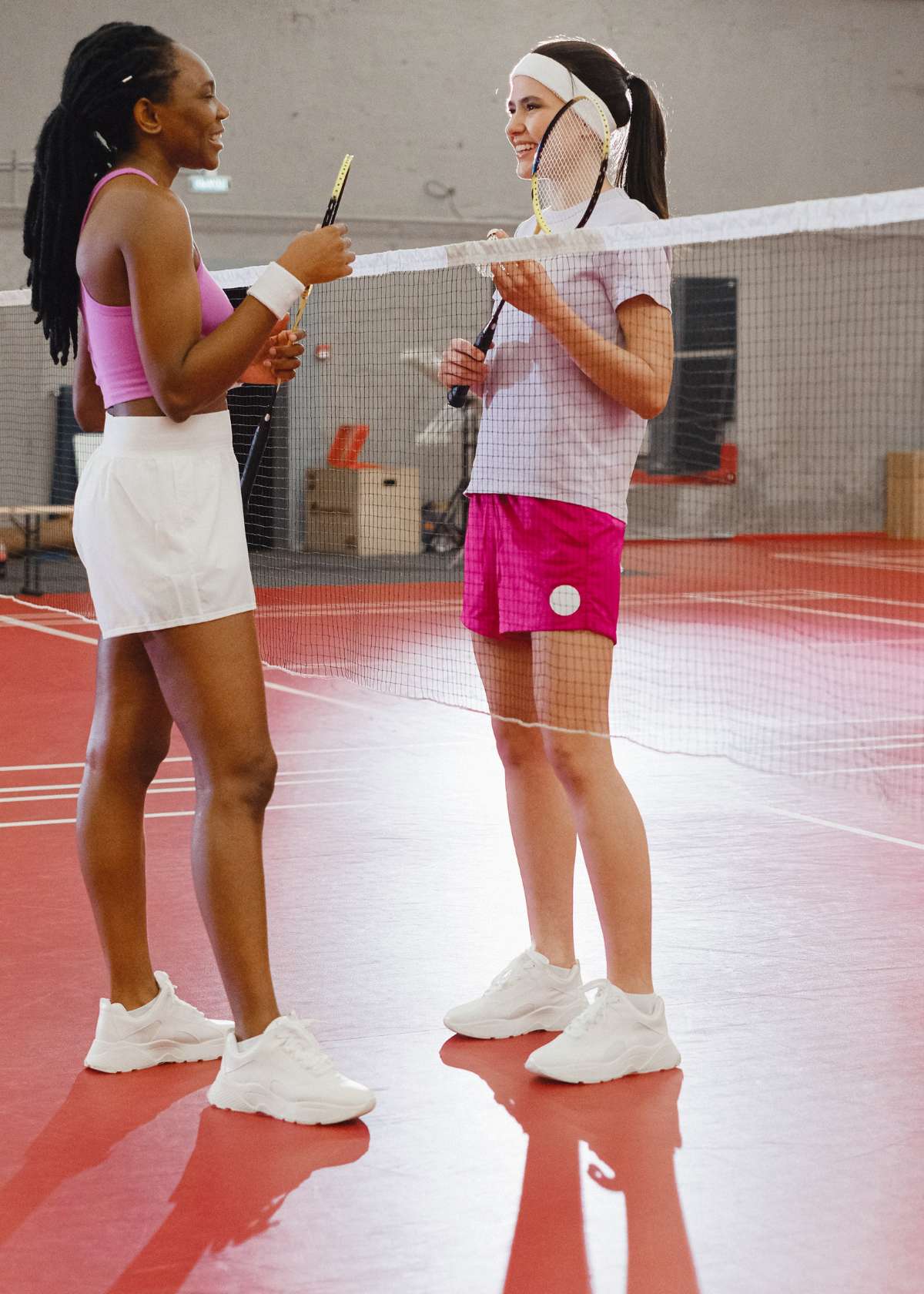
Profiles of Famous Badminton Players
Brief Profiles of a Few Top Players
Lee Chong Wei: A Malaysian player, Lee Chong Wei, is considered one of the greatest singles players of all time. He held the world No.1 ranking for a total of 349 weeks and has won numerous titles, including three Olympic silver medals.
Lin Dan: Often called "Super Dan", this Chinese player is widely regarded as the best badminton player in history. He completed the "Super Grand Slam" by winning all nine major titles in the badminton world: Olympic Games, World Championships, World Cup, Thomas Cup, Sudirman Cup, Super Series Masters Finals, All England Open, Asian Games, and Asian Championships.
P.V. Sindhu: An Indian player, P.V. Sindhu became the first Indian woman to win an Olympic silver medal in 2016. She has also won gold at the World Championships and is known for her aggressive playing style.
Their Contributions to the Sport
These players have significantly contributed to the sport, raising its global profile through their exceptional performances. They have inspired a new generation of players and helped promote badminton in their respective countries and beyond. Their dedication, sportsmanship, and impressive skill set serve as a benchmark for aspiring badminton players worldwide.
Getting Started with Badminton
Advice for Beginners
Starting a new sport can be daunting, but with the right approach, you can enjoy and excel at badminton. Begin by familiarizing yourself with the basic rules and equipment. Invest in a good quality racket and shoes that offer support and comfort.
Start with basic shots like the serve and clear, gradually moving on to more advanced techniques like the drop shot and smash. Remember, consistency is key, so practice regularly.
Resources for Learning and Improving
There are numerous resources available to help you learn and improve your badminton skills. Local sports clubs often offer badminton classes for beginners. Online platforms provide video tutorials covering everything from basic rules to advanced strategies. Books on badminton can also be insightful, offering tips on technique, training, and mental preparation.
Conclusion
Recap of Key Points
Badminton is a dynamic and engaging sport enjoyed by millions worldwide. It not only provides an excellent physical workout but also offers numerous mental benefits. With a rich history and famous players who have left indelible marks on the sport, badminton continues to evolve and enthrall.
To get started, familiarize yourself with the basics and practice regularly. There are plenty of resources available to help you learn and improve your game.
Encouragement for Readers to Try the Sport
Whether you're looking for a new hobby, a fun way to stay active, or a competitive sport to excel in, badminton is a fantastic choice. With some basic equipment and an understanding of the rules, you can start playing and reaping its benefits.
So why wait? Grab a racket, hit the court, and discover the joy of badminton for yourself!
Frequently Asked Questions
How is badminton played?
Badminton is played on a rectangular court that is divided by a net. Players score points by striking the shuttlecock with their racquet so that it passes over the net and lands in their opponent's half of the court.
What are the basic rules of badminton?
Each game begins with a serve. The server and receiver stand in diagonally opposite service courts. The main aim of the game is to hit the shuttlecock over the net landing it within the margins of the court and in a way that results in your opponent being unable to return the shuttlecock.
How does scoring work in badminton?
A match consists of the best of 3 games of 21 points. Every time there's a serve, a point is scored. The side winning a rally adds a point to its score.
What is a shuttlecock and why is it used in badminton?
A shuttlecock, or birdie, is a high-drag projectile used in badminton. It is designed to create higher drag for better control while playing.
What's the difference between badminton and other racket sports like tennis or squash?
The main differences lie in the equipment, scoring system, court dimensions, and rules. Badminton uses a shuttlecock instead of a ball, and the court is smaller than a tennis court.
Discover the ultimate badminton gear effortlessly! Our expert selections guarantee maximum satisfaction, saving you the hassle of extensive research!
Discover our exciting new blogs on badminton and sports & fitness!

